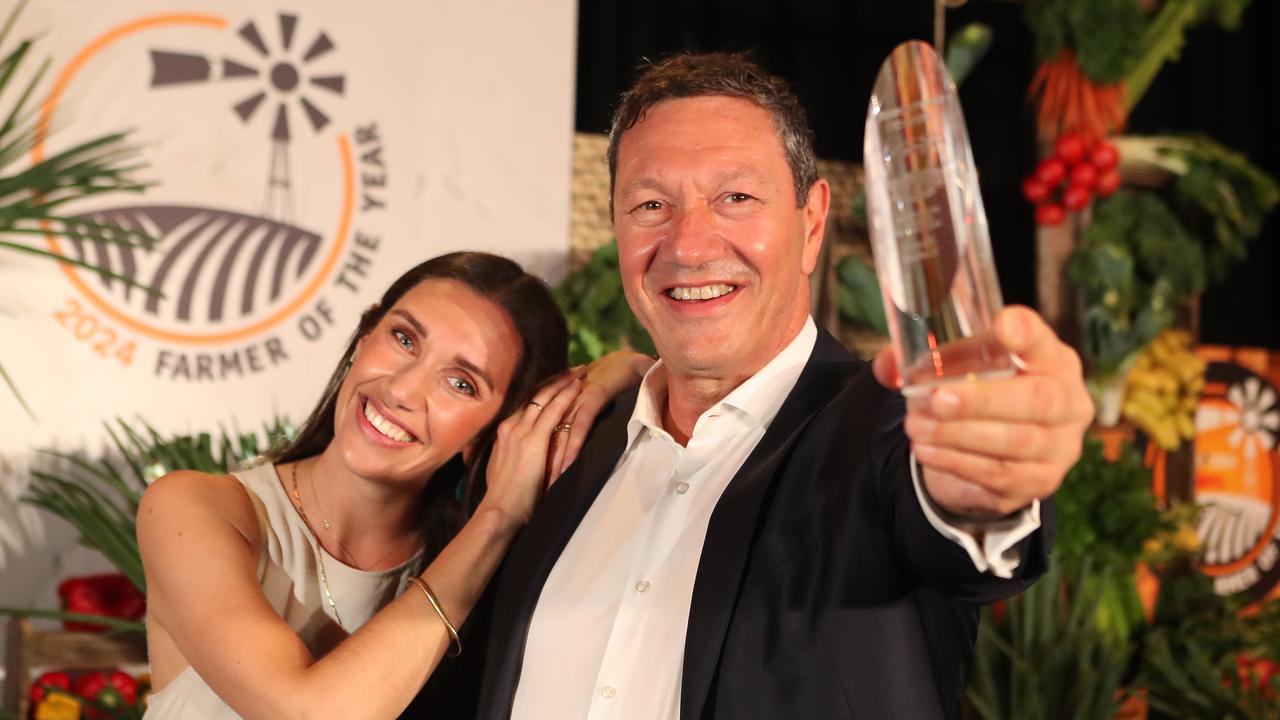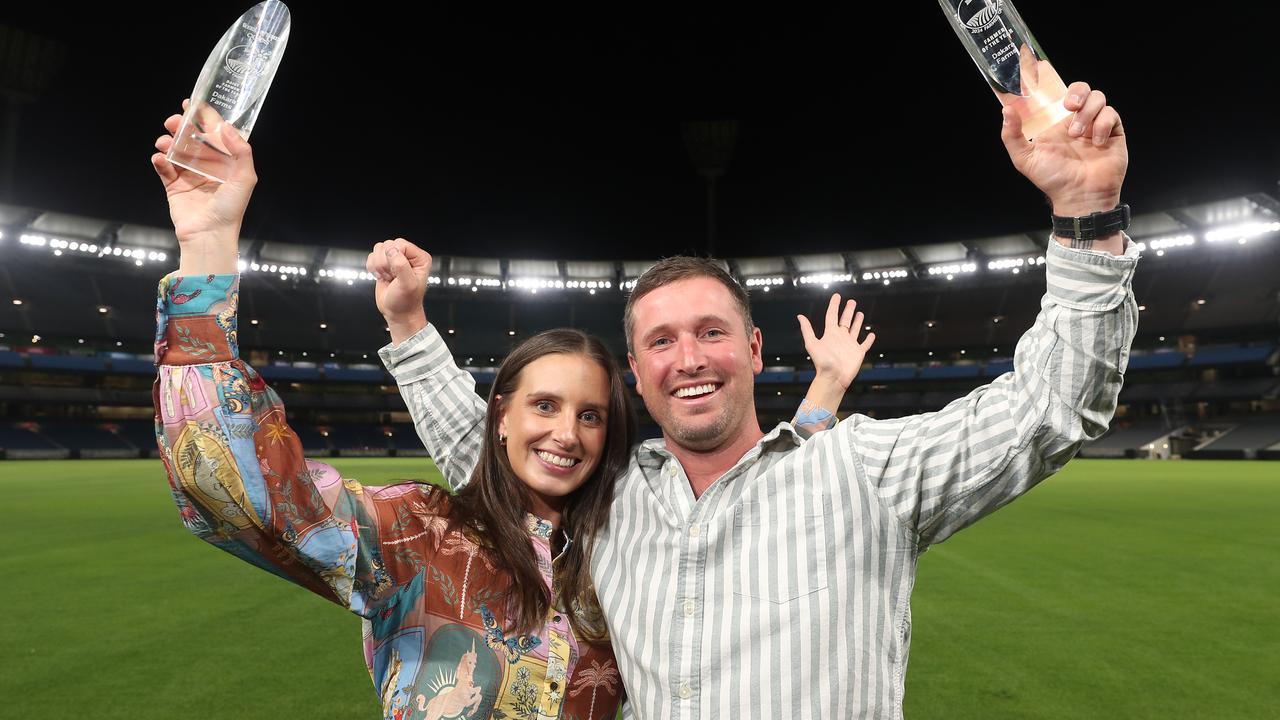Kangaroobie Meats boosts business with online profile
Lockdowns have led to a surge in business for Sophie and Matt Bowker’s home-delivered meat enterprise. Here’s how they made the best of a tough situation.
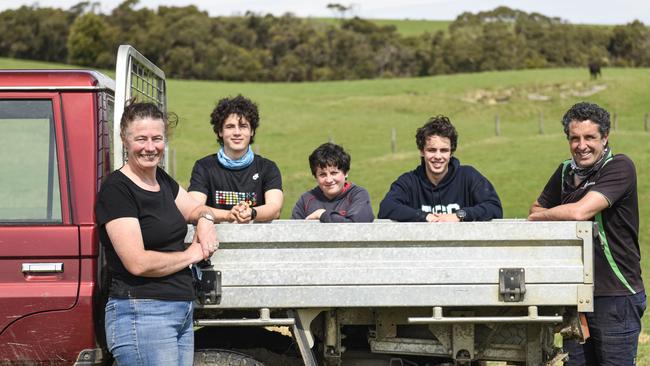
MATT and Sophie Bowker’s direct meat business — like so many enterprises — lost a chunk of their market on the back of coronavirus.
But unlike others, Kangaroobie Meats – in a giant leap – has increased business fourfold.
The couple runs a 1010ha farm at Princetown, on the Great Ocean Road, with 900 Simmental-Angus, selling steers 10-12 months to private buyers or through Mortlake saleyards.
For the past five years, pre-pandemic, the Bowkers were processing about two heifers — 12-18 months or 360-450kg liveweight — once a month for pre-ordered meat deliveries, through two pick-up hubs in Melbourne.
But since COVID-19, this has increased to four heifers every fortnight, through door-to-door deliveries around Melbourne, Geelong and the Great Ocean Road.
“It has gone absolutely crazy. The moment we started doing social media, we’re selling everything we process, even tongues, livers and hearts,” Matt said. “I think people are more aware of what they’re eating, where it has come from and how it has been raised.”
Sixth-generation farmer Matt’s great-great-great grandfather established the property, Kangaroobie, more than 150 years ago, and the couple — who has three children, Lachlan, Christopher and Charlie — took over management of the land in the late 1990s.
They continued the cattle enterprise, as well as the family’s on-farm school camp, which has run since 1978 and hosts a different school group every week of the year, sleeping up to 190 in dorms and offering hands-on agricultural activities.

TASTE TEST
MATT said it was through the camp – which attracts about 60 schools – that the meat business initially began.
“We have always processed the meat we grow on the property to feed to school camps,” he said.
“We started getting teachers telling us how much they loved the meat, that it was better than anything they could get in the supermarket, asking whether we could deliver it.”
Matt said the family had long grappled with how to get a premium for their meat through value-adding, and what model they would follow.
“We looked at different business concepts, where customers buy a quarter or half an animal. But we found customers do it once, have a freezer full of mince and sausages, and never go back.
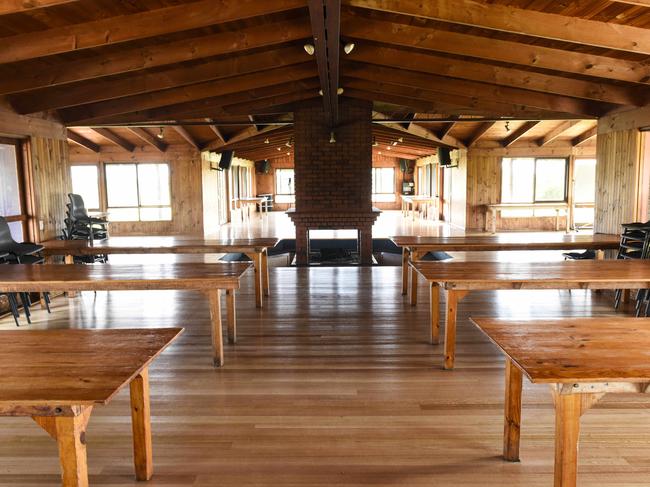
“We didn’t want to just sell a box of meat, we wanted to let them buy the cuts they wanted.”
So five years ago, on the back of demand, they launched Kangaroobie Meats online shop, buying a PrimeSafe refrigerated van to do monthly deliveries to two schools in Melbourne, where parents would pick up pre-ordered meat; also selling at one farmers’ market a month.
The model is based on a first-come-first served basis: customers receive an email with new products and once cuts are sold, there’s no more available.
Any meat that doesn’t sell is used through school camp meals, such as hamburgers and sausages.
Cattle are processed 40 minutes from the farm, at Koallah Boutique Abattoir, which also bones and packages it, value-adding into sausages and even pet mince.
However, once coronavirus shut down schools and school camps, the Bowkers were left with excess meat. But not for long.
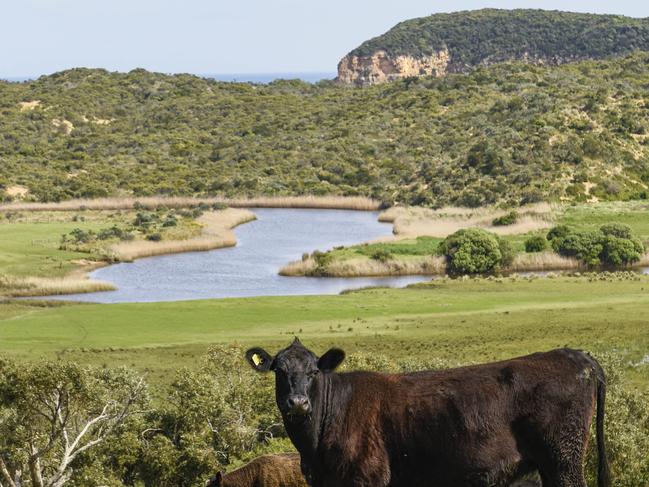
OUT OF THE BOX
NOT only have they redesigned the model, offering boxed delivery drop-off to homes around Melbourne every fortnight, they are also taking part in Click for Vic, a Visit Victoria campaign to encourage consumers to buy local products online.
“It’s a fantastic program to get products from the regions to people who would not normally be able to access it,” he said.
Matt said they opt for Simmental-Angus because the cross produces a “cracking vealer”. “It’s bigger than a straight Angus and gets to weight quicker.”
Black Simmental bulls are purchased from Woonallee Simmentals and Angus from Banquet stud at Mortlake, aiming for a low birth weight and faster growth.
Because the cattle – which calve twice a year – are used for activities in the school camp, from pulling calves to feeding, they are relaxed, with quiet temperaments, making them appealing to private buyers, he said.
While Matt continued the cattle and school enterprises established by his forebears, the 47-year-old – who previously worked as an environmental scientist at BHP – has changed several farm management systems.
His father was an agricultural scientist who followed a traditional superphosphate program.
But Matt doesn’t use inorganic fertilisers and shuns pesticides and herbicides.
Instead he sources pig manure and hay from South Australia and NSW, applying 100kg/ha every autumn to the sandy soil, which receives an average annual rainfall of 950mm.
SOIL SYSTEM
THE contrast is apparent. Under the old superphosphate regimen, grass would grow 5cm under the soil, creating a root mat: in winter flooding and in summer very dry.
Under the compost system the root mat has disappeared, with grasses growing deeply, not flooding in winter and keeping green in summer.
The Bowkers also annually use an aerator – a machine with long spikes – that allows water and air deeply into soil, encouraging grass growth.
Pastures are not renovated, instead relying on historical rye-grass, clover and kikuyu.
“One of the great things about running the school camp is that the farm can become something of a research project, so I can try different things to demonstrate to the pupils,” he said.
“We’ve found by getting the soil right, the grasses grow so we have very few weeds.
“Dad used to spray, but I can’t see value in putting pesticides in the soil because you destroy so much more than what you are targeting.”
The farm is currently one of several to take part in a local Landcare soil carbon trial, locking up a hectare to survey a range of grasses and legumes to measure soil carbon capture.
This year the Bowkers have also signed a Trust for Nature covenant across a 260ha vegetated section of the property. From the top of Kangaroobie, the vista stretches across the Great Ocean Road, to the 12 Apostles and Bass Strait.
“We’re very lucky to live here, I know. It sounds corny but I don’t see the land as mine.
“I’m the caretaker. I want to improve what we have got so I leave it better than what I took on.”
MORE
CATTLE PRODUCERS ELATED BY RECORD SPRING BULL SEASON
CATTLE MARKET: HIGH DEMAND DRIVING BIDDERS IN SALEYARDS AND ONLINE

